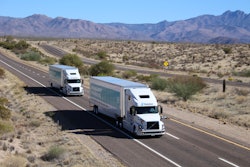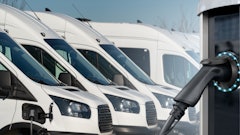
Ceres announces the launch of a new alliance to help companies accelerate the transition to electric vehicles, a key component of tackling the climate crisis.
The Corporate Electric Vehicle Alliance will help member companies make and achieve bold commitments to fleet electrification, and is expected to boost the electric vehicle market by signaling the breadth and scale of corporate demand for electric vehicles -- expanding the business case for the production of a more diverse array of electric vehicle models. It will also provide a platform to coordinate support for policies that enable fleet electrification.
“The climate crisis demands we decarbonize transportation -- the highest-emitting sector in the U.S. -- and electric vehicles are an essential component of this transition,” says Ceres’ vice president of climate and energy Sue Reid. “With companies controlling more than half the vehicles on the road in the U.S. today, they have a tremendous role to play in leading the transition to electric vehicles -- both in terms of electrifying their own fleets and in leveraging their buying power to send a strong market signal to automakers and policymakers alike. The Corporate Electric Vehicle Alliance is where the rubber hits the road.”
Companies also have a clear economic incentive to electrify their fleets. Electric vehicles present significant benefits to companies, including cost savings on fuel and maintenance, reduced greenhouse gas (GHG) emissions, freedom from reliance on volatile oil and gas prices, improved driver safety, enhanced company reputation, and bolstered workforce recruitment and retention.
Read Next: Smithfield Foods generates renewable natural gas from wastewater to power North Carolina communities
Ceres launched the Corporate Electric Vehicle Alliance to address the fact that the electric vehicle market is advancing, but not fast enough to meet the needs of every company. Automakers are not producing the necessary range of light-, medium-, and heavy-duty electric vehicle models at the economies of scale many fleet operators need. There are also opportunities for an improved state and federal policy landscape to accelerate development and deployment of electric vehicles and infrastructure at scale.
The Corporate Electric Vehicle Alliance helps address these challenges by providing a platform for members to collaborate to identify challenges and potential solutions, and to leverage aggregate corporate demand to:
- Production of new and increased volumes of EV models
- EV market growth and economies of scale
- Adoption of supportive policies and the removal of policy barriers
- Peer-to-peer learning with regard to industry best practices.
The Corporate Electric Vehicle Alliance’s flagship members are Amazon, AT&T, Clif Bar, Consumers Energy, DHL, Direct Energy, Genentech, IKEA North America, LeasePlan, Lime, and Siemens. These members operate some of the largest fleets in the U.S. Some have already made significant commitments to electric vehicles, and will look to the Corporate Electric Vehicle Alliance to help them meet their goals.
“The Climate Group is excited to join Ceres as an engagement partner on their new initiative, the Corporate Electric Vehicle Alliance,” says Amy Davidsen, Executive Director, North America, The Climate Group. The transportation sector is the fastest-growing contributor to climate change and businesses have an important role to play in accelerating the transition to electric transport. By working in partnership with Ceres we aim to scale-up corporate leadership on electric vehicles in the US. The Alliance will provide additional practical guidance to companies looking to implement their commitments to initiatives like EV100 – our leading corporate leadership campaign on EVs - making it easier for more US businesses to go electric by 2030.”















